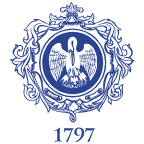Introduction
The Russian State Pedagogical University, also known as the Herzen State Pedagogical University of Russia, is one of the oldest institutions of higher learning in Russia and a world-renowned normal university. It is recognized as a leader in the education field in Russia and the world, and maintains a high level of research in the field of education.
Overview
Student size: There are nearly 20,000 undergraduate and graduate students (including correspondence and night classes), including more than 1,000 foreign students.
Faculty: The school has more than 2,000 teachers, including 260 professors and doctors, more than 800 associate professors and associate doctors, as well as many academicians of the Academy of Sciences, scientific and cultural meritorious activists and meritorious actors.
History and establishment time
The school was founded in 1797, and its history can be traced back to the Royal Orphanage founded by the famous Enlightenment thinker and educator Ivan Ivanovich Betskoy in the mid-18th century. In 1918, the People's Education Committee approved the establishment of the Third Petrograd Pedagogical Institute, which was named "Herzen" in 1920. The current name has been used since January 1991.
School Strength
Teaching Achievements: Since its establishment, the school has trained more than 200,000 graduates, including a large number of former Soviet and Russian heroes, labor heroes, and more than 2,000 honorary teachers, activists, and cultural workers.
Scientific Research Cooperation: The school has cooperative relations with universities and scientific centers in China, the United States, Germany, France, the United Kingdom, the Netherlands, Finland, Switzerland, Sweden, Norway, Israel, Hungary and other countries, and actively carries out international scientific research cooperation and exchange projects.
Institutional Nature
Public University.
Educational Philosophy
Focus on cultivating students' educational practice ability and innovative spirit, inheriting and developing Russia's excellent educational traditions, emphasizing the combination of education and actual social needs, and is committed to cultivating educational talents with high professionalism and social responsibility for the society.
Key Laboratories and Disciplines
Key Laboratories: The university has 25 Research centers and national and regional laboratories, the more famous ones are the Institute of Continuous Teacher Education, the Institute of Natural Sciences, the Institute of Humanities Education, the International University Cooperation Center, etc.
Key disciplines: Education, psychology, music, fine arts, language and other disciplines are the key disciplines of the school. Among them, education and psychology are second to none in the world education field, and music and fine arts majors have profound attainments in the field of Russian art.
Faculty
The school has a total of 23 departments and 107 teaching and research offices, covering languages, foreign languages, mathematics, biology, correctional education, fine arts, music, sports, philosophy, chemistry, geography, social sciences, physics, economics, Russian as a foreign language, preschool education, primary education and other majors.
Ranking
In 2019, the school became one of the best universities in the world. According to the Times Higher Education ranking, it ranks relatively high in the field of education.
Expenses
Tuition fees: Preparatory courses are generally around US$3,000-4,000/year. Undergraduate and master's tuition fees vary depending on the major, roughly between US$3,500-5,000/year.
Living expenses: The general living expenses for studying abroad in St. Petersburg are between RMB 2,500 and 3,500.
Campus
Teaching facilities: The school's campus is a unique complex of palaces and parks, with various specialized classrooms and modern teaching facilities. It is also equipped with a series of scientific research laboratories, telecommunications support education centers, professional publishing houses, observatories, museums, etc. that meet the needs of daily education and teaching as well as scientific research.
Living facilities: The school has dormitories for domestic and international students and canteens and other living facilities. Dormitories are generally 2-person rooms with complete furniture. They provide desks, chairs, wardrobes, bed sheets, quilt covers and other study and living supplies and 24-hour hot and cold water to meet students' daily needs.
Cultural facilities: The school is also equipped with professional theaters, student theaters, folk groups and other cultural facilities. In addition, the school will also hold various cultural activities, such as social practice, scientific and technological innovation, literary and artistic competitions and cultural exchange activities, to enrich students' extracurricular life.
-

Peter the Great St.Petersburg Polytechnic University
-
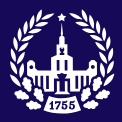
Moscow State University M. V. Lomonosov
-
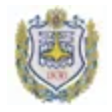
Bauman Moscow State Technical University
-
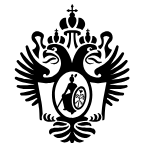
St. Petersburg State University
-

Tomsk State University
-

Peoples' Friendship University of Russia
-

Don State Technical University
-
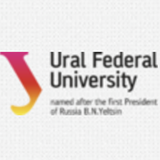
Ural Federal University
-

Moscow Institute of Physics and Technology
-
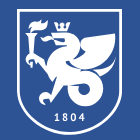
Kazan Federal University
-

Mesoamerican University
-

Istmo University
-

Mariano Galvez University of Guatemala
-

Regional University of Guatemala
-

Galileo University
-

Francisco Marroquín University
-

Rafael Landívar University
-

University of the Valley of Guatemala
-

University of San Carlos of Guatemala
-

Technological Institute of Tlaxcala Plateau
-

Golfo University
-

Technological University of South Sonora
-

Technological University of Huejotzingo
-

Tizimín Institute of Technology
-

Chilpancingo Institute of Technology

